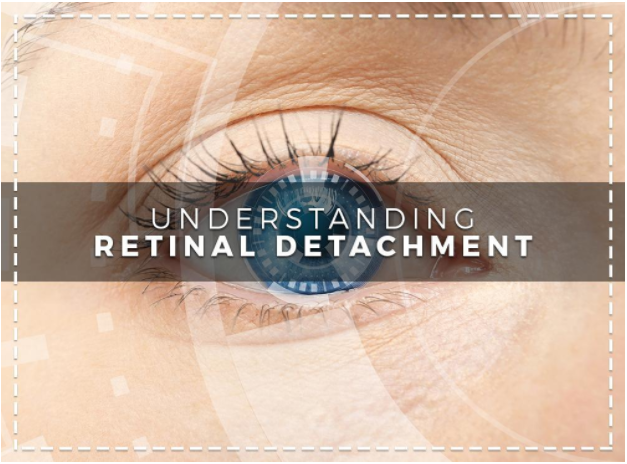The retina is the light-sensitive tissue that lines the back of your eyes. It plays a central role in the image translation process by converting visual signals into nerve impulses. Retinal detachment occurs when the retina detaches from its underlying retinal pigment epithelium (RPE), resulting in visual changes or even blindness. Read on as your expert eye doctors from the Neal Eye Group discuss further:

Root Cause
Eye injuries, inflammation, or trauma can cause eye fluids to accumulate behind your retina, pulling it apart from the underlying RPE. Highly nearsighted individuals are at a higher risk, as their eyes are “longer” with thinner retinas, making them more susceptible to detachment. Some eye diseases, like diabetic retinopathy, can cause new blood vessel growth under the retina, pushing it farther from its supporting tissue layer and increasing the risk of detachment.
Common Manifestations
You may notice specks, cobwebs, and other floaters across your visual field, which can gradually increase in numbers. You may also experience light flashes as the retina detaches from its underlying RPE. In more severe cases, a dark curtain may seem to cover your eyesight. If you experience any of these symptoms, visit your reliable optometrist immediately. Retinal detachment is a sight-threatening disease that can cause total and permanent blindness without prompt treatment.
Our Suggested Management
With its serious complications, retinal detachment is considered an emergency condition. This is why prompt management is critical. We may perform laser or cryopexy procedures to create scars around your retina, welding it back into its place.
We may also suggest applying a scleral buckle on your posterior eyeball, pushing the eye against your retina. If the vitreous causes a strong pulling force on your retina, your trusted eye doctor may suggest removing part of it through a vitrectomy.
If you have any further questions about retinal detachment, call us at (610) 813-2988. We serve Lafayette Hill, Norristown, and Philadelphia, PA.

0 Comments